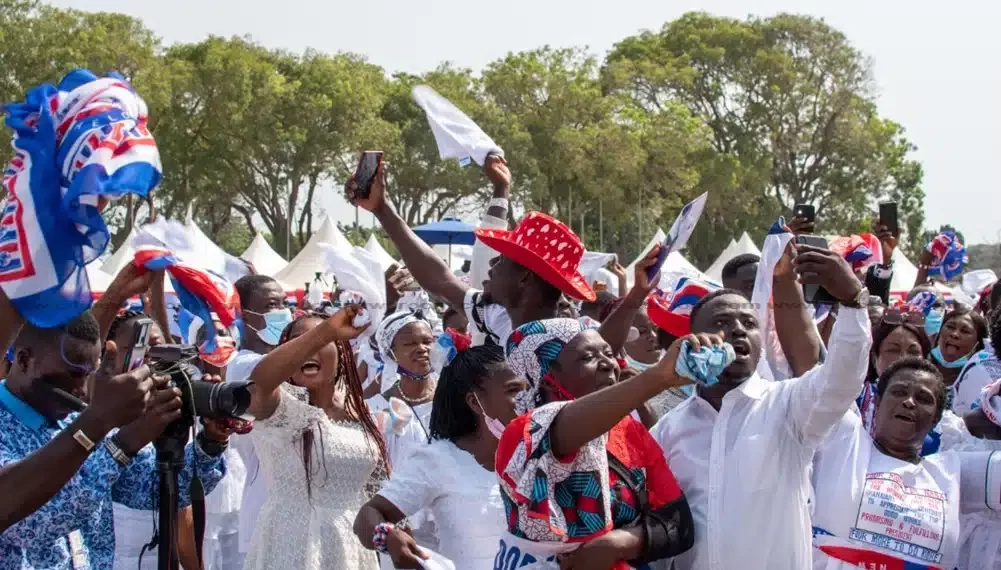The New Patriotic Party is set to hold its National Delegates Conference on November 4 2023 to elect its flagbearer ahead of the 2024 general elections.
The election is scheduled to take place at all the 276 constituencies nationwide and the Party Headquarters, Asylum Down, Accra, making it 277 voting centres in all.
Even though the Presidential Election Committee has outlined some key guidelines as part of the measures to ensure that the party’s presidential primaries are conducted without any occurrences, the road to the primaries has been marred by accusations and counter-accusations between the two main camps in the contest; the Assin Central Member of Parliament, Kennedy Ohene Agyapong and the Vice President, Dr Mahamudu Bawumia.
A few days after the Assin Central legislator alleged that Constituency Chairmen in the party were offered GHs 100,000 each to vote in a particular direction during the special delegate conference on August 26 2023, his Campaigner Manager, Kwame Owusu has admitted that their campaign team has also resorted to offering financial incentives to some delegates ahead of the upcoming November 4 presidential primaries.
According to Mr Owusu, their decision to induce delegates was in response to the exorbitant sums of money being disbursed to delegates by the Vice President, Dr Mahamudu Bawumia’s camp.
“He has given some inducements which are far too high and people look at it and they are very dissatisfied as to things that we have not been able to pay, such as NABCO. Recently we were even owing so much money as regards school feeding and the rest…so when people see the amount of money that is moving that they claim they don’t have, people become suspicious”.
Kwame Owusu
Ghana’s Case Of Money Politics And Its Danger On Democratic Governance
It is undoubtedly a known fact that under the fourth republic, elections whether being general elections, political party primaries or even student elections have been characterized by sheer opulence; a situation whereby both political parties and aspirants always try to induce and influence electorates choices by distributing items and dashing money to electorates during their campaign and on the day of elections.
This phenomenon has gradually turned into a tradition whereby aspirants or candidates with the highest bid win elections rather than candidates with realistic and feasible policies.
Another tragic aspect of the phenomenon is that the electorates themselves have now developed the habit of demanding money or cash and other items from aspirants before they vote for such aspirants.
For most ordinary voters and delegates their reason is that they mostly enjoy no dividends from political office holders after voting them into office. They therefore find elections the opportune time for them to also cash out.
Elections in Ghana particularly political party’s internal elections whether at the constituency, regional or national level have become transactional rather than a means for citizens to exercise their right of participation which is based on the assumption that each voter possesses the ability to make free and rational decisions or choices.
The Center for Democratic Development (CDD-Ghana) in a publication on October 19 2021 revealed that it will cost not less than US$100 million to win a presidential election in Ghana. The study also showed that parliamentarians also need at least GHC4 million to win their election.
This phenomenon has served the purpose of consolidating elites’ rule as well as the political exclusion of the non-elites.
A discernible “ritual of money politics” has enabled the powerful elites to remain in power and newcomers to develop the elite characters.
Ghana’s practice of democratic governance and development risk being seriously thwarted if corruption in the processes is not tackled head-on.
READ ALSO: Mahama Expresses Excitement Over The Vibrancy Of NDC In Canada



















